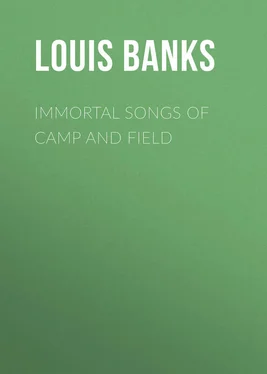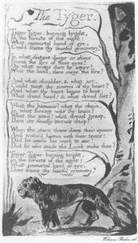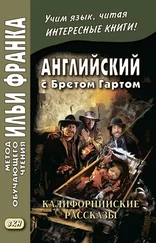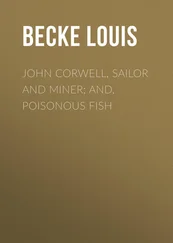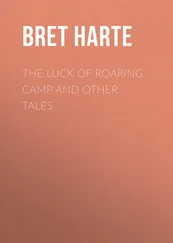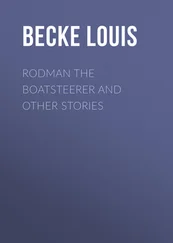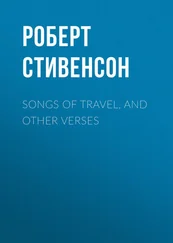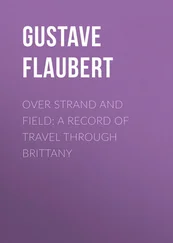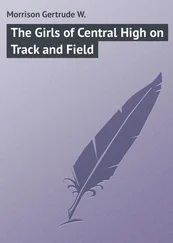Louis Banks - Immortal Songs of Camp and Field
Здесь есть возможность читать онлайн «Louis Banks - Immortal Songs of Camp and Field» — ознакомительный отрывок электронной книги совершенно бесплатно, а после прочтения отрывка купить полную версию. В некоторых случаях можно слушать аудио, скачать через торрент в формате fb2 и присутствует краткое содержание. Жанр: foreign_antique, foreign_prose, на английском языке. Описание произведения, (предисловие) а так же отзывы посетителей доступны на портале библиотеки ЛибКат.
- Название:Immortal Songs of Camp and Field
- Автор:
- Жанр:
- Год:неизвестен
- ISBN:нет данных
- Рейтинг книги:5 / 5. Голосов: 1
-
Избранное:Добавить в избранное
- Отзывы:
-
Ваша оценка:
- 100
- 1
- 2
- 3
- 4
- 5
Immortal Songs of Camp and Field: краткое содержание, описание и аннотация
Предлагаем к чтению аннотацию, описание, краткое содержание или предисловие (зависит от того, что написал сам автор книги «Immortal Songs of Camp and Field»). Если вы не нашли необходимую информацию о книге — напишите в комментариях, мы постараемся отыскать её.
Immortal Songs of Camp and Field — читать онлайн ознакомительный отрывок
Ниже представлен текст книги, разбитый по страницам. Система сохранения места последней прочитанной страницы, позволяет с удобством читать онлайн бесплатно книгу «Immortal Songs of Camp and Field», без необходимости каждый раз заново искать на чём Вы остановились. Поставьте закладку, и сможете в любой момент перейти на страницу, на которой закончили чтение.
Интервал:
Закладка:
It was only twenty-five years after Doctor Shuckburg’s joke when Lord Cornwallis marched into the lines of these same old ragged Continentals to surrender his army and his sword to the tune of Yankee Doodle .
Francis Hopkinson, of Philadelphia, one of the signers of the Declaration of Independence, and the father of Joseph Hopkinson, the author of Hail Columbia , adapted the words of his famous song The Battle of the Kegs , to the tune of Yankee Doodle . David Bushnell, the inventor of the torpedo, in December, 1777, had set adrift at night a large number of kegs charged with gunpowder, which were designed to explode on coming in contact with the British vessels in the Delaware. They failed in their object, but, exploding in the vicinity, created intense alarm in the fleet, which kept up for hours a continuous discharge of cannon and small arms at every object in the river. This was “the battle of the kegs.”
Verses without number have been sung to the tune of Yankee Doodle , but the ballad given here is the one that was best known and most frequently sung during the war for independence. They are said to have been written by a gentleman of Connecticut whose name has not survived. The exact date of their first publication is not known, but as these verses were sung at the Battle of Bunker Hill it must have been as early as 1775.
THE STAR-SPANGLED BANNER
O say, can you see by the dawn’s early light,
What so proudly we hailed at the twilight’s last gleaming?
Whose broad stripes and bright stars through the perilous fight,
O’er the ramparts we watched, were so gallantly streaming!
And the rocket’s red glare,
The bombs bursting in air,
Gave proof through the night that our flag was still there;
O say, does that star-spangled banner yet wave
O’er the land of the free and the home of the brave?
On that shore, dimly seen through the mists of the deep,
Where the foe’s haughty host in dread silence reposes,
What is that which the breeze, o’er the towering steep,
As it fitfully blows now conceals, now discloses?
Now it catches the gleam
Of the morning’s first beam,
In full glory reflected now shines on the stream;
’Tis the star-spangled banner! Oh, long may it wave
O’er the land of the free and the home of the brave!
And where is that band who so vauntingly swore
That the havoc of war and the battle’s confusion
A home and a country should leave us no more?
Their blood has washed out their foul footsteps’ pollution.
No refuge could save
The hireling and slave
From the terror of flight or the gloom of the grave;
And the star-spangled banner in triumph doth wave
O’er the land of the free and the home of the brave!
Oh, thus be it ever when freemen shall stand
Between their loved homes and the war’s desolation!
Blessed with victory and peace, may the heaven-rescued land
Praise the Power that hath made and preserved us a nation.
Then conquer we must,
When our cause it is just,
And this be our motto – “In God is our trust:”
And the star-spangled banner in triumph shall wave
O’er the land of the free and the home of the brave!
No song could have had a more inspiring source of creation than did this. Its author, Mr. Francis Scott Key, was a young lawyer who left Baltimore in September, 1814, while the war of 1812 was yet going on, and under a flag of truce visited the British fleet for the purpose of obtaining the release of a friend of his, a certain Doctor Beanes, who had been captured at Marlborough. After his arrival at the fleet he was compelled to remain with it during the bombardment of Fort McHenry, as the officers were afraid to permit him to land lest he should disclose the purposes of the British. Mr. Key remained on deck all night, watching every shell from the moment it was fired until it fell, and listening with breathless interest to hear if an explosion followed. The firing suddenly ceased before day, but from the position of the ship he could not discover whether the fort had surrendered or the attack had been abandoned. He paced the deck for the remainder of the night in painful suspense, watching with intense anxiety for the return of day, and looking every few minutes at his watch to see how long he must wait for it; and as soon as it dawned, and before it was light enough to see objects at a distance, his glass was turned to the fort, uncertain whether he should see there the Stars and Stripes or the flag of the enemy. At length the light came, and he saw that “our flag was still there;” and as the day advanced he discovered from the movement of the boats between the shore and the fleet that the English troops had been defeated, and that many wounded men were being carried to the ships. At length Mr. Key was informed that the attack on Baltimore had failed, and he with his friend was permitted to return home, while the hostile fleet sailed away, leaving the Star-Spangled Banner still waving from Fort McHenry.
During the intense anxiety of waiting for dawn, Mr. Key had conceived the idea of the song and had written some lines, or brief notes that would aid him in calling them to mind, upon the back of a letter which he happened to have in his pocket. He finished the poem in the boat on his way to the shore, and finally corrected it, leaving it as it now stands, at the hotel, on the night he reached Baltimore, and immediately after he arrived. The next morning he took it to Judge Nicholson, the chief justice of Maryland, to ask him what he thought of it; and he was so pleased with it that he immediately sent it to the printer, Benjamin Edes, and directed copies to be struck off in handbill form. In less than an hour after it was placed in the hands of the printer it was all over the town, and hailed with enthusiasm, and at once took its place in the national songs. The first newspaper that printed it was the American , of Baltimore.
The tune, which has helped so much to make it famous, also had an interesting selection. Two brothers, Charles and Ferdinand Durang, were actors at the Holliday Street Theater in Baltimore, but were also soldiers. A copy of Francis Key’s poem came to them in camp; it was read aloud to a company of the soldiers, among whom were the Durang brothers. All were inspired by the pathetic eloquence of the song and Ferdinand Durang at once put his wits to work to find a tune for it. Hunting up a volume of flute music which was in one of the tents, he impatiently whistled snatches of tune after tune, just as they caught his quick eye. One, called Anacreon in Heaven , struck his fancy and riveted his attention. Note after note fell from his puckered lips until, with a leap and shout, he exclaimed, “Boys, I’ve hit it!” And fitting the tune to the words, there rang out for the first time the song of The Star-Spangled Banner . How the men shouted and clapped; for there never was a wedding of poetry to music made under more inspiring influences! Getting a brief furlough, the Durang brothers sang it in public soon after. It was caught up in the camps, and sung around the bivouac fires, and whistled in the streets, and when peace was declared, and the soldiers went back to their homes, they carried this song in their hearts as the most precious souvenir of the war of 1812.
The song bears evidence of the special incident to which it owes its creation, and is not suited to all times and occasions on that account. To supply this want, additional stanzas have, from time to time, been written. Perhaps the most notable of all these is the following stanza, which was written by Oliver Wendell Holmes, at the request of a lady, during our civil war, there being no verse alluding to treasonable attempts against the flag. It was originally printed in the Boston Evening Transcript .
Читать дальшеИнтервал:
Закладка:
Похожие книги на «Immortal Songs of Camp and Field»
Представляем Вашему вниманию похожие книги на «Immortal Songs of Camp and Field» списком для выбора. Мы отобрали схожую по названию и смыслу литературу в надежде предоставить читателям больше вариантов отыскать новые, интересные, ещё непрочитанные произведения.
Обсуждение, отзывы о книге «Immortal Songs of Camp and Field» и просто собственные мнения читателей. Оставьте ваши комментарии, напишите, что Вы думаете о произведении, его смысле или главных героях. Укажите что конкретно понравилось, а что нет, и почему Вы так считаете.
